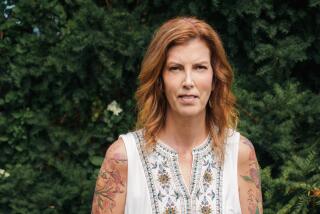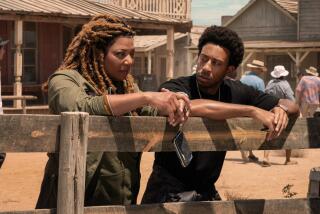‘Bully’ deserved better
Do movies need a ratings system? Yes. Is the Motion Picture Assn. of America doing it well? Not even close. Should things change? Of course they should.
And that change should happen now, over the movie”Bully”and the issues of decency and common sense it raises.
This film, directed by Lee Hirsch, follows the real-life stories of five bullied kids over the course of a school year. It’s a story kids everywhere should see. But it will be released this weekend with no rating, a risky move since fewer theaters are likely to show it. That decision was forced by the MPAA, which despite ample protests insisted on giving “Bully” an R rating, putting it off limits for kids younger than 17 unless accompanied by an adult. According to the MPAA, the primary reason it got an R rating was because of the repetition of the “F word” in one scene.
I am known for directing R-rated movies, and I believe those films deserved the R rating they were given by the MPAA. That said, I am often shocked by many other ratings the MPAA hands out.
Do we really believe that a repeated curse word, or showing a woman’s nipple (an instant R rating), is more detrimental to our children than the high-magnitude violence portrayed in many popcorn films the MPAA gives aPG-13rating?
The ratings make a statement that it’s fine to expose children to mayhem, but the human body is something to be ashamed of. And they suggest that a word teenagers already know is harmful — but only if used more than once.
The rationale for handing out ratings is wrong and behind the times. The MPAA is upside down, and it’s time it got in step with the 21st century. Its monopoly on deciding who can see films and, less directly, what theaters will show them is a form of bullying itself.
But the truth is, the issue with “Bully” is a whole other can of worms. “Bully” is a documentary. Documentaries are not just a reflection of true life, as fictional movies are; they are true life. They should not be rated using the same rules as fictional material. A documentary is, in essence, news. It is a form of reporting, artfully told, and it should be protected and rated in a completely different way than a Hollywood movie.
Every day in this country, children are brutalized mentally and physically by their peers, and instead of making sure this reality can be seen and felt more deeply through “Bully,” which can only build understanding, kindle empathy and begin to help solve this problem, we have been caught up in a ratings issue.
The proper response to this censorship is not rocket science. Once upon a time there was no PG-13, only PG and R. Then someone realized there needed to be an adjustment, something between the two ratings. We are at that crossroads again. Every day that another child is brutalized while the MPAA declines to make a proper, mature, adult adjustment to its system is an atrocity.
Chris Dodd, the MPAA’s chief, said the ruling couldn’t be changed: “I’ll have 10 other filmmakers lined up saying they shouldn’t be given the R. And who are we to say why this film should be different than the others?”
I think that’s a cop-out; an exception could have been made for this film. But it’s time to do more than that. It’s time to fix the criteria and the entire ratings system to prevent this from happening ever again.
Bullied children are real people. They are not characters in a Hollywood movie. To ignore the difference is to ignore the business of the MPAA ratings in the first place. They are supposed to protect our kids, aren’t they?
How ironic.
David Dobkin is the director of “Wedding Crashers.”
More to Read
A cure for the common opinion
Get thought-provoking perspectives with our weekly newsletter.
You may occasionally receive promotional content from the Los Angeles Times.










